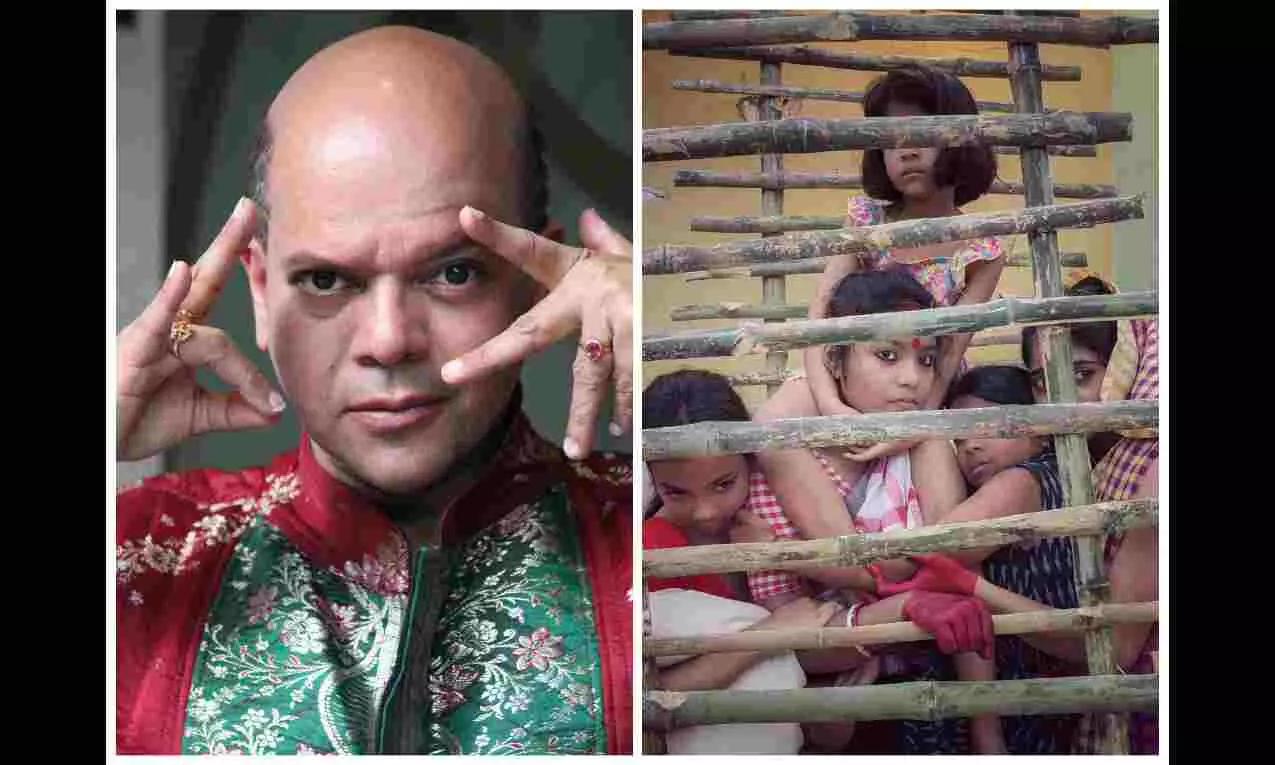‘We always had to prove ourselves’
Sudarshan Chakravorty gears up to celebrate Sapphire’s annual gala in Kolkata

Come March 27, the ‘Sapphire’ annual gala will be held at Gyan Manch, Kolkata. The celebrated dance company of Kolkata will present the premiere of ‘Kitareba Ver 2.0’, which is based on the idea of the effect of war on women and children in terms of emotion, pain and agony as a result of displacement, migration and violence. Before the gala performance, ‘Millennium Post’ caught up with popular dancer Sudarshan Chakravorty, who is the founder-director of Sapphire Creations Dance Company.
Your dance company turns 32. How has the journey been so far?
Sapphire Creations Dance Company is pioneering energy, which stirred the comfort of the existing dance scenario in the early 1990s to find a new voice of experimental dance with an eclectic, organic and radical physical vocabulary of aesthetics and content that revolutionised the artistic context of modern dance in Eastern India, way back in 1992. It set a new parameter to look at the practice, performance and use of dance as a ‘vehicle of social consciousness’, making it a tool of awareness and empowerment for the community and dance practitioners who wanted to break barriers and seek their own signature. ‘Sapphire’ remains a lead in furtherance of this goal, which has now been manifested by many such followers who have created new platforms and interventions in the region.
‘Kitareba Ver 2.0’ is based on the idea of the effect of war on women and children. The idea has global significance.
‘Kitareba’, a multimedia opus, delves into the global odyssey of migrants, magnifying their unwavering devotion to their motherlands. It unfurls a tapestry of unity and empathy, embracing communities ensnared by tumultuous borders. The composition’s politically charged discourse ignites profound introspection into the labyrinthine intricacies of warfare, migration and individual identity through movement, spoken text and multimedia with more than 50 dancers, singers and actors.
What kind of performances can we look forward to?
This one-hour performance will involve children, female and male dancers. We also included live singers like Dipanita Acharya, Chandrima Bhattacharya and Joy Sankar, who will bring in songs from ‘Opar Bangla’ and ‘Kampuri Geeti’ to highlight the plight of longing and fondness one has towards one’s language, land and culture. The trigger is indeed the 1947 Partition and later the Liberation War of Bangladesh in 1971. Gradually, it became the story of ‘home’ and ‘homelessness’ in the context of exodus, exile, migration and displacement of women and children in times of war, which is relevant even now.
How has dance changed over the years, especially regarding experimental and fusion styles like those seen in Sapphire Creations Dance Company?
Any change takes time and we had to always prove ourselves, which made us bring in international dancers, teachers and choreographers and share with our fraternity the like-mindedness of our work. Now, the scene has changed and we are accepted and celebrated. There are more ‘players’ and social impact has become strong but many practitioners and also the audience have lost the real connection to create, investigate and invest in the journey of creating art making it a confusing form for many.




